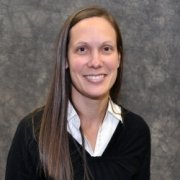A Generational Approach to Growth Mindset
MedEdPearls February 2024: How can understanding generational differences in learning expectations help you foster a growth mindset in your health professions learners?
Each generation values and manages work and education in different ways. An individual’s approach to learning, whether formal or workplace education, impacts their capacity to develop a growth mindset and their ability to flourish in both settings. Dweck’s growth mindset views challenging work as a learning and growing opportunity as opposed to a fixed mindset view where intelligence is considered innate and static and natural ability determines success.
As the generational gap between health professions educators and learners grows, understanding each generation’s expectations for learning and communication is critical to bridging this chasm. The Pew Research Center defines generational boundaries as a continuum with the following birth year ranges:
- Baby Boomers born 1946 – 1964
- Generation X born 1965 – 1980
- Generation Y (aka Millennials) born 1981 – 1996
- Generation Z born 1997 - 2012
Expectations differ across the generational continuum as Baby Boomers teaching style expectations are teacher-centered or a “paternal” model (Instruction Paradigm). In contrast, Generation X and Millennials teaching style expectations are learner-centered or a “customer” model (Learning Paradigm). Generation X and Millennials tend to be skeptical of a teacher-centered teaching style as they want to be an active participant in their learning - for example by having active discussions and working in small groups - and expect curricular information and concepts to have clinical contextual relevance. Generation Z learners prefer blended learning approaches that integrate social interactions, activities, and technology with concise instructions and immediate feedback.
Expectations of self also differ between generations. Baby Boomers are described as having a tempered view of self while younger generations have high expectations of self. These high expectations may translate to younger generations being self-assured and confident in their abilities while older generations are more self-reliant, using their own resources to obtain what they want to achieve.
Educators have an opportunity to leverage generational differences in the context of a growth mindset. In the learning environment, educators can draw on the confidence of this younger generation to promote independent learning and discovery, while ensuring clear and relevant curricular expectations. A growth mindset can also be fostered when giving feedback to younger learners as feedback should be carefully crafted and framed as a part of learning, especially when it is critical or formative. Teachers can effectively structure feedback into a learning experience by discussing the process at the start of the rotation or before an observed task. Providing feedback as coaching or mentoring opportunities are strategies that can enhance a growth mindset, particularly when it is focused on processes, behaviors, and efforts.
An overall shift is needed away from a fixed mindset, often created from praise for intellect and abilities, to the development of a growth mindset where deficiencies and challenges are considered opportunities to improve knowledge, skills, and competence through effort, practice, and learning.
What methods do you use to help learners adopt a growth mindset? Share your ideas via LinkedIn at #MedEdPearls!
About the MedEdPearls Author

Jennifer Hillyer
PhD
- Executive Director, Institute for Teaching Excellence
- Assistant Professor of Internal Medicine, Northeast Ohio Medical University
- Jean Bailey, PhD – Virginia Commonwealth University School of Medicine
- Carrie Bowler, EdD, MS, MLSCM (ASCP) – Mayo Clinic School of Continuous Professional Development
- Kristina Dzara, PhD, MMSc (Educators ’16; Assessment ’16; HCE 2.0 ’17) – Saint Louis University School of Medicine
- Shanu Gupta, MD, SFHM – University of South Florida Morsani College of Medicine and Tampa General Hospital
- Jennifer Hillyer, PhD – Northeast Ohio Medical University
- Larry Hurtubise, PhD, MA (HCE 2.0 '16) – The Ohio State University
- Anna Lama, EdD, MA – West Virginia University School of Medicine
- Machelle Linsenmeyer, EdD, NAOME (Assessment ’07) – West Virginia School of Osteopathic Medicine
- Skye McKennon, PharmD, BCPS, ACSM-GEI – Washington State University Elson S. Floyd College of Medicine
- Rachel Moquin, EdD, MA – Washington University School of Medicine
- Stacey Pylman, PhD – Michigan State University College of Human Medicine
- Leah Sheridan, PhD – Northeast Ohio Medical University
- Lonika Sood, MBBS, MHPE – Washington State University Elson S. Floyd College of Medicine
- Mark Terrell, EdD – Lake Erie College of Osteopathic Medicine
- Stacey Wahl, PhD – Virginia Commonwealth University School of Medicine
Harvard Macy Institute
Harvard Macy Institute
The Harvard Macy Institute educates, connects, and serves health care leaders around the globe by providing advanced faculty development programs, thought leadership, and impactful networking opportunities.
6 Programs

